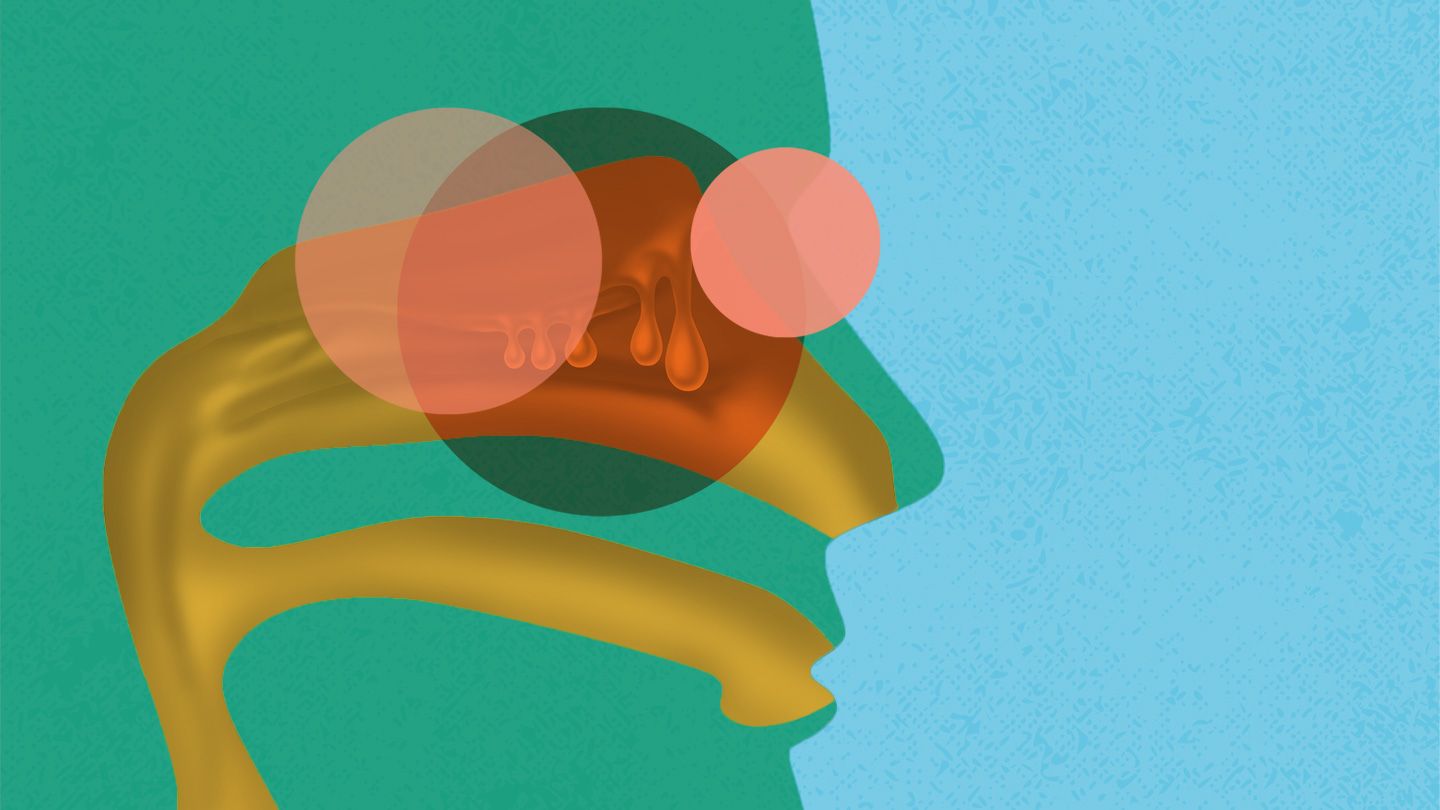The Dangers of a Stuffy Nose
A stuffy nose can be incredibly uncomfortable and irritating. But can a congested nose actually be dangerous or deadly if left untreated? In some rare cases, yes it can.
How a Stuffy Nose Occurs
When the membranes lining our nasal passages become irritated or swollen from inflamed blood vessels, the nostrils can feel blocked. This inflammation traps mucus inside, causing the discomfort we know as nasal congestion or a stuffy nose.
In most cases, stuffy noses are harmless despite being annoying. Causes typically include allergy irritation, colds, flu, or changes in weather or air temperature. But occasionally, more serious medical issues can lead to chronic nasal congestion.
The Role of Mucus in Respiratory Health
To understand why blocked nasal passages can sometimes be dangerous, it helps to examine the critical role mucus plays in our respiratory system.
Healthy mucus lines the nasal cavities, throat, lungs, and other organs, lubricating these tissues and trapping pathogens, toxins, and debris. Tiny hair-like cilia push this mucus upwards so we can blow it out or swallow it away.
When excess mucus accumulates in the nasal passages, coughing, throat clearing, and blowing our noses become essential to expel it. Otherwise, the stagnant mucus could allow harmful microbes to thrive in the upper airways or lungs.
When a Stuffy Nose Becomes High Risk
For most healthy individuals, a stuffy nose from time to time results in nothing more than short-term hassle. But for vulnerable populations, blocked nasal or respiratory passages pose much higher risks.
Those With Compromised Immune Systems
Infants, young children, and elderly adults tend to have underdeveloped or weakened immune systems. For them, accumulating mucus from a stuffy nose can provide the perfect breeding ground for dangerous infections.
Pneumonia poses perhaps the biggest threat if congestion is left untreated. But the inability to expel mucus could also allow nasty sinus, throat, or ear infections to take hold.
Those With Existing Respiratory Issues
People living with chronic lung diseases like COPD, cystic fibrosis, bronchitis, or asthma already struggle managing mucus build-up. For them, a stuffy nose exacerbates existing mucus clearance challenges.
And if new mucus production isnt offset by expectorating existing phlegm, the lungs cant oxygenate properly. Hospitalization or supplemental oxygen often becomes necessary in these cases to support breathing function.
Those Physically Unable to Clear Mucus
Patients healing from surgery or injury may be temporarily bedridden or unable to forcefully cough. Their inability to clear even mild nasal congestion leaves them susceptible to dangerous pneumonias stemming from trapped phlegm trickling into the delicate lung tissue.
Individuals suffering from advanced neurodegenerative diseases like ALS, MS, or Parkinsons can face similar mucus clearance challenges. Without a means to expectorate stuck mucus, their stuffy nose woes can quickly spiral into respiratory crises.
Complications from Chronic Congestion
For the majority of patients at higher risk, addressing stuffy and congested nasal passages promptly can prevent life-threatening infections. But even mild, recurring bouts of nasal stuffiness carries consequences over time.
Sleep Apnea
Studies show chronic nasal congestion often contributes to the onset of Obstructive Sleep Apnea (OSA). As mucus accumulates in the nasal passages overnight, it progressively narrows the airway.
Eventually, vulnerable soft tissues in the throat collapse under reduced air pressure. And the resulting reduction or complete blockage of breathing robs the brain and body of enough oxygen to function properly.
Cardiovascular Disease
Research also links long term nasal congestion to higher incidence of hypertension, heart attack, and stroke. Experts believe chronic mouth breathing from congestion causes overactivation of the sympathetic nervous system.
And the constant state of stress this overactivity produces damages blood vessels over decades. Eventually, the cardiovascular system wears down from working harder to overcome inflamed, congested air pathways.
Fatigue and Cognitive Impairment
Attempting to breathe through chronically blocked nasal airways requires considerable effort. The brain recruits additional resources to force inhaled oxygen through partially obstructed nostrils.
Over years, the added work of respiratory gas exchange strains neurological resources resulting in mental fog, slowed reaction times, dangerous driving errors, and crippling fatigue.
When a Stuffy Nose Becomes an Emergency
Most cases of nasal congestion, even in vulnerable populations, pose no immediate mortal risks when promptly treated. But extremely rare scenarios exist where severely blocked nasal breathing can become instantly life-threatening.
Traumatic Facial Injuries
Severe trauma from falls, assault, or car accidents that fracture nasal bones or damage nose cartilage can instantly block nasal airways. With mouths blocked by debris, blood, damaged teeth, or broken jaws, victims unable to inhale through crushed noses face imminent danger of suffocation.
Prompt emergency intubation to open blocked air passages becomes essential in these chaotic scenarios. So the ability to recognize and treat blocked nasal airways during trauma response remains imperative.
Rapid Onset Allergic Reactions
While not typically fatal by itself, rapidly developing allergic rhinitis from bites, foods, or medication can cause highly dangerous anaphylactic reactions. Life-threatening drops in blood pressure alongside closing throat airways make these situations imminently perilous.
And because mouth breathing itself can trigger additional airway inflammation during these reactions, swollen nasal passages further intensify the risk. Quick administration of epinephrine and steroids helps stabilize patients until antihistamines and decongestants provide relief.
Foreign Objects Lodged in Nostrils
Young children occasionally require emergency extraction of pebbles, food, small toys, sponges, or other objects crammed deep into their nasal cavities. If these blockages are too large or lodged too deeply, attempts to inhale through the mouth can accelerate the object deeper still.
In the most severe cases where a child cannot breathe at all, prompt anesthesia and urgent removal with forceps prevents catastrophic hypoxic brain injuries or death while efforts persist clearing the nasal passages.
Gaining Proper Perspective on Stuffy Noses
Considering all the dangers a stuffed up nose presents, why dont doctors recommend prophylactic surgery to widen nasal airways and minimize risks? Because outside incredibly rare scenarios, our nasal congestion defenses work exceptionally well when were healthy.
Noses block for an important reason - to trap pathogens and particulate until sticky mucus can catch it. So by itself, a stuffy nose indicates well-functioning immune defenses responding to airborne threats as they should.
Doctors only intervene when secondary health issues or chronic inflammation prevents the exceptional mucus clearance mechanisms baked into our sinus and respiratory systems from working properly. Aside from managing complications, noses are typically best left alone to handle congestion.
FAQs
Why can a stuffy nose be dangerous?
Excess mucus from nasal congestion can allow infections to develop if it's not cleared properly, especially in people with weakened immune systems. And for those with existing lung diseases, the added mucus production can obstruct oxygen exchange in the lungs.
What conditions make a stuffy nose higher risk?
Infants, young children, elderly adults, and anyone with a chronic respiratory condition is most vulnerable to complications from nasal congestion. Accumulating mucus poses greater infection risks for them. Bedridden, postoperative, or neurodegenerative disease patients may also be unable to clear mucus.
Can lifelong nasal congestion cause other diseases?
Yes, chronic lifelong nasal stuffiness appears closely linked to development of sleep apnea, high blood pressure, stroke, heart disease, fatigue, and cognitive problems - likely from long-term cardiovascular strain and poor oxygen exchange.
When does a stuffy nose require emergency care?
A crushed nose after facial trauma, sudden acute allergic reactions, or foreign objects lodged deeply in a child's nose all represent scenarios where obstructed nasal breathing necessitates urgent medical intervention to prevent catastrophic outcomes.
Disclaimer: This article is for informational purposes only and does not constitute medical advice. Always consult with a healthcare professional before starting any new treatment regimen.
Related Coverage
Learn if you can safely take Nyquil alongside Advil Cold & Sinus to treat cold and flu symptoms or if dangerous side effects can occur mixing the two OTCs....
From first tickle to last cough, the average common cold lasts 7-10 days, with peak severity around day 4. Learn about common cold stages, symptoms, and treatment....
Black mist irrigation creates a fine, cooling mist to efficiently water plants. Learn the pros and cons, design considerations, installation, and ideal applications....
Wondering if NyQuil is sugar free? Get the facts on the sugar and carb content in different NyQuil products. Compare regular vs sugar-free NyQuil here....
Relieve coughs caused by colds, allergies, and irritants with the natural power of onions and honey. Discover easy homemade syrups, teas, lozenges, and more....
Hot showers may temporarily relieve body aches, congestion, and chills from the flu by increasing circulation. But take care not to overheat....
Ibuprofen and Mucinex attack different cold symptoms without interacting. Learn how pairing these over-the-counter medications provides comprehensive relief....
Learn how Tamiflu works to shorten flu symptoms and help you recover faster. Get the facts on effectiveness, timing, and side effects....
Ear pain has many causes including infections, swimmer's ear, TMJ and more. Learn the symptoms of ear infections and how to treat and prevent them properly....
Learn about causes of jaw pain when you have the flu. Discover tips for managing headache, body aches, fever and fatigue until influenza symptoms resolve....









